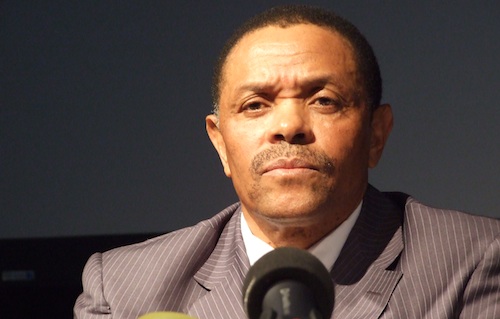
A plan to auction off valuable radio frequency spectrum that can be used to provide wireless broadband services appeared to be hanging in the balance on Tuesday after communications minister Siphiwe Nyanda raised concerns over the process.
The council of the Independent Communications Authority of SA (Icasa) is meeting today (Tuesday) to discuss its response to the minister’s concerns. An Icasa insider says there is a possibility that an invitation to apply (ITA) for the spectrum may have to be withdrawn and reissued, potentially delaying the process by months.
Nyanda’s spokesman Tiyani Rikhotso could not immediately be reached for comment but it’s understood the minister met with Icasa councillors late last week to express his concerns that sections of the ITA run contrary to government policy on the management of scarce spectrum.
It’s not clear where Nyanda thinks the ITA conflicts with national spectrum policy.
Icasa chairman Paris Mashile says the Icasa council is meeting today to formulate a response to the minister. He says he will be able to comment in greater detail on Wednesday once a formal letter of response has been sent to Nyanda.
But Mashile says policy on spectrum is “no different” to what’s contained in the ITA. “We have looked at the ITA and the policy related to spectrum,” he says. “There’s no conflict.”
He says Icasa has followed the requirements set out in the Electronic Communications Act carefully.
An Icasa source says Nyanda has also raised concerns about “gaps” in the ITA and a disjuncture between relevant regulations published in 2006 and 2008. The source says it’s too early to know if the ITA will have to be withdrawn. At the very least, though, it appears that the whole process will be delayed.
The spectrum in question is in the 2,6GHz and 3,5GHz frequency bands.
The spectrum licensing process has already caused deep unease among incumbent operators. In an interview with TechCentral last week, Vodacom Group CEO Pieter Uys warned that the cellphone giant could walk away from the auction process if the rules of engagement were not changed.
Mobile operators are keen to get their hands on spectrum in the 2,6GHz band so they can begin building networks using “long-term evolution”, the successor technology to the 3G voice and data networks they operate currently. — Duncan McLeod, TechCentral
- Subscribe to our free daily newsletter
- Follow us on Twitter or on Facebook




